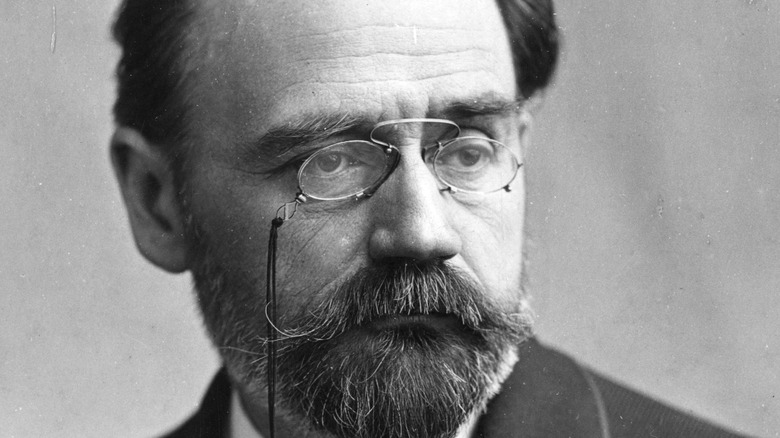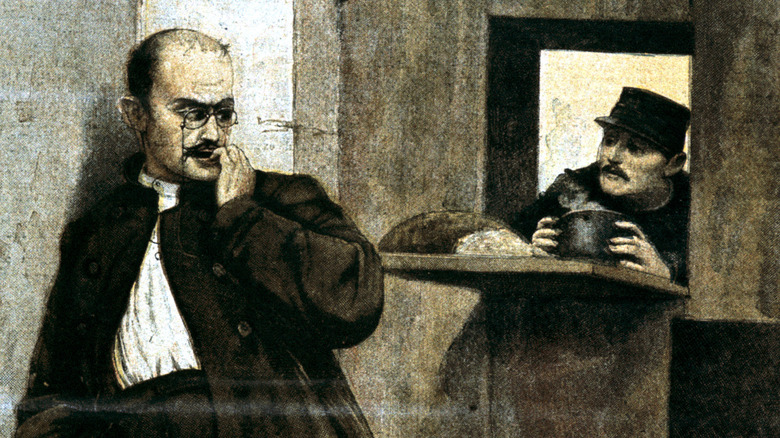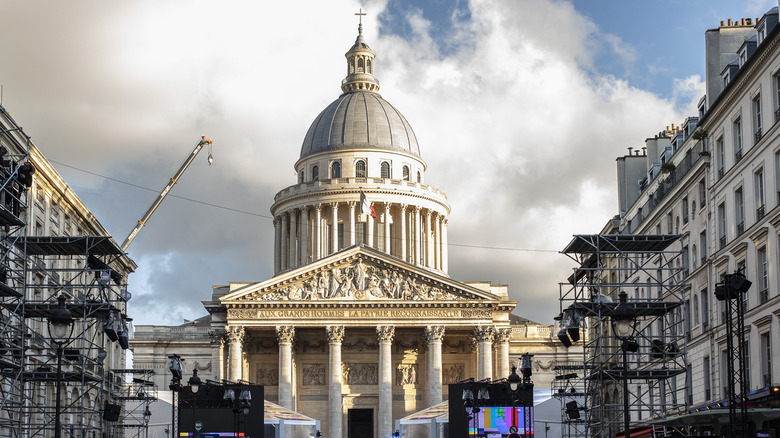Why There Are Conspiracy Theories About Émile Zola's 1902 Death
Author of the 20-volume series titled "Les Rougon-Macquart," among other well-known novels, plays, articles, and essays, Émile Zola was a popular French writer in the late 19th century, according to Britannica. Zola died in 1902 during the French Third Republic, during La Belle Époque, and his works are full of interesting characters and details which were shocking to the public at that time (via Study). In the last decade or so of Zola's life, a member of the French army, Captain Alfred Dreyfus, a French Jew, was convicted of treason for allegedly selling secrets to the Germans (also via Britannica). Over time, the Dreyfus conviction was cast in doubt, and many in French society — including Zola — concluded that Dreyfus was innocent, and that his conviction was motivated instead by anti-semitism, as Britannica notes elsewhere. The scandal, trial, and media circus captivated and divided France.
Zola championed the Dreyfus cause in one of his most well-known works, an open letter titled "J'accuse," written to the French president at that time and published in the French newspaper L'Aurore. The Dreyfus case was re-examined, and although he was found guilty again, the president of France pardoned him, and the conviction was legally set aside in 1906. The position that Zola took on the divisive Dreyfus scandal has lead some conspiracy theorists to believe that the famous French author may have been murdered, rather than the official explanation — that his death was caused by accident.
Zola's official cause of death was carbon monoxide poisoning
As History Today explains, Émile Zola died from what was ruled at that time to be carbon monoxide poisoning from a coal fire lit in his bedroom that night. Zola's wife, Alexandrine, was also sickened but recovered. Prior to that point, Zola's outspoken position on the Dreyfus Affair had drawn criticism from some corners of French society who contended Dreyfus (above, in prison) was guilty, and particularly from right-wing French nationalists. He's said to have received threatening letters from so-called anti-Dreyfusards, according to a 2002 Los Angeles Times report. For this reason, when Zola's mistress learned that Zola had died she immediately assumed it was murder, as History Today goes on to note.
Regardless of those suspicions, Zola's official cause of death was ruled to be accidental carbon monoxide poisoning. Some 50,000 people attended his funeral, including many high-ranking government officials and Dreyfus himself. Rumors that Zola was murdered, however, quickly spread, so much so that an inquest was ordered, and the house in which he died and in which his wife was sickened was tested. Fires were lit to test for carbon monoxide, and guinea pigs were left in the same room overnight, among other experiments.
The guinea pig survived
As part of that inquest into Zola's death, the flue in the room where he died was examined and evidence was found that it was not properly cleaned, but little evidence of carbon monoxide was found, and the guinea pig left in the room overnight survived. Nonetheless, the results of that inquest were covered up and the official cause of death remained carbon monoxide poisoning. More than anything, what in the minds of many supports the unconfirmed conspiracy theory that Zola was murdered came nearly a half century after his death, when a French newspaper printed what was reported to be a confession, as History Today explains.
As that French newspaper revealed in the 1950s, an anti-Dreyfusard chimney sweep confessed on his deathbed in the 1920s to blocking and then unblocking the Zola fireplace chimney, causing what was actually Zola's murder carbon monoxide poisoning. Today, it's generally accepted among official Zola biographers that the story that the newspaper printed could be true, but that there's no way to know for sure. What's certain is that even in death, Zola remained a hot-button figure for French nationalists. In 1908, Zola's body was exhumed and moved from where it lay at Montmartre Cemetery to be reinterred at the Pantheon (pictured) among other well-known people in French history. The move drew protests from anti-Dreyfusards, and during Zola's reinterment ceremony, attended by Dreyfus himself, shots were fired.


